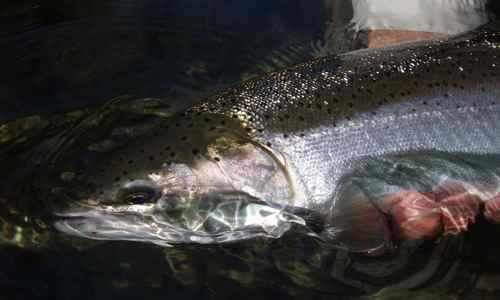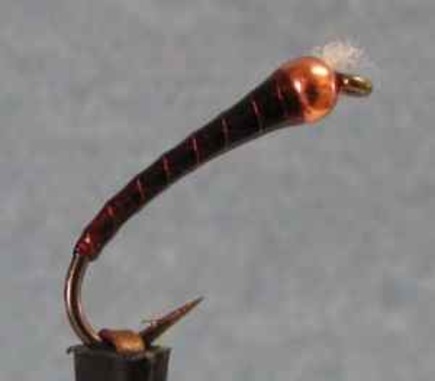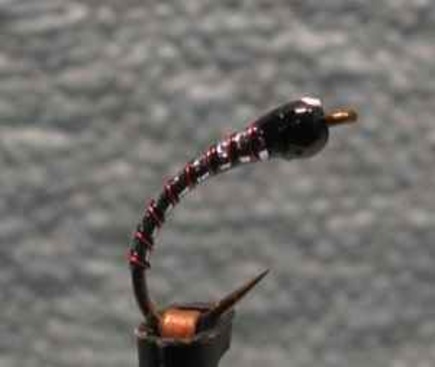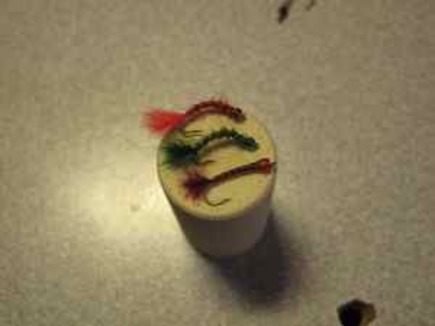Long Range Fish Report
From Sportfishing
From Sportfishing
Fish Report for 8-17-2013
What are the current fly fishing reports for Vancouver B.C.
8-17-2013
SportfishingReport.com Staff
Outlook:
This weather, gasp! Is this RAIN? In Vancouver?? This wet stuff is so unusual around Vancouver I don't know what to do?? Yes, the barometer has dropped, raindrops are in the forecast for this weekend but this should not "dampen" your spirits regarding the fishing which has been great as of late.
Up in the interior the dryness continues and this bodes well for some dry fly fishing on the Thompson and other areas. We even have an updated Stillwater report from our friend John Kent on which lakes to target and why NOW is the time to go target a few of our favorite lakes!
If you fish anywhere in INDIAN ARM READ THIS! We have had reports that conservation officers patrolling the area and confiscating a lot of gear. Rockfish are a protected fishery and there are some very specific and detailed area's in Indian Arm where you will get fined, lose your gear or both for even dropping a line/hook in the protected area. This means that if you are fishing in a ANY (not just Indian Arm)protected region for rockfish and you chase some pink salmon into that area and pursue with a FLY you will still lose all your gear. Protected spots means NO HOOK in the water period. Rockfish Conservation zones in Howe Sound & Indian Arm are absolutely important for any trip.
Stillwater Report: John Kent has given you Stillwater fans a breath of fresh air in this mid-summer report. Enjoy!
The Exception to the Rule
As Stillwater fly fishers we know that the late summer heat of August has forced the trout to murky depths and made them too lethargic to chase any offering we present. It is at this time that we pursue other recreational interests while we wait for water temperatures to cool down in mid-September and bring on the fall fishing season.
However there is an exception to the rule. Of course the rivers offer exceptional fishing at this time but we will stick to either Stillwater's or bust! So the options are slim. You can step outside your comfort zone and go to lakes at much higher elevations and usually smaller fish due to a shorter growing season or you can ply your usual haunts with Hi-D lines and dredge the depths early morning and late evening for the few cooperative fish that might engage you.
For those unaware, there are a handful of lakes in the Southern Interior that explode to life from mid-July to late August when surface temperatures are close to busting through the 70F marker. A couple of the lakes in question are Minnie and Stoney on Douglas Lake Ranch, Hatheume Lake, just off the Kelowna Connector on the Merritt side and Tunkwa/Leighton perched upon the Thompson Nicola Plateau.
And what could possibly be hatching at this time of the year to bring the fish out of the comfort of the cool depths? Bomber chironomids! They are called that because of their size compared to standard chironomids that emerge in such great numbers in the spring and to a lesser degree in the fall. The Stillwater standards ranging from size 18-12 are on a one year life cycle whereas bombers take two years to emerge into adults.
The first bomber hatches of the summer occur at both Minnie/Stoney and Hatheume as well as a few other lakes that are unmentioned here but I will concentrate on Tunkwa Lake as that is where the lion's share of my knowledge resides having managed the resort from 1999 to 2008.
Without exception this is absolutely the best time of the year to find the largest residents of Tunkwa cruising the bottom depths in 12-14' of water looking for chironomids staging up for their emergence. At this time of the year Tunkwa has a maximum depth of 17' which makes it very difficult for the fish to hide even if they wanted to which in turn makes it very easy for the fly fisher to locate them.
BOMBER (see Photo #1)
Floating lines, indicators and 17' leader setups are the way to go. Recommended rods are medium to fast action in the 5-7 wt. class. Keep in mind that it is important to shorten the time of the battle and revive them to good condition before releasing. The warm surface temps can make a strong fish build up lactic acid quickly so stout rods are beneficial at this time of the year.
Chromer (see Photo #2)
When tying imitations of bombers you will want to cover a wide range of sizes from as small as size 12 1XS to size 8 3XL with the larger sizes being over an inch long. Big bloodworms work very well this time of the year as well and are best tied on size 12 3XL to size 8 3XL in reds, maroons and greens and believe it or not, combinations of these colours.
Bloodworm Patterns (see Photo #3):
To complicate the tying even further you will want bead heads ranging from white to copper to brown to black and everything in between. Bead sizes should be 7/64th's to 1/8th. Coloured beads which incorporate gills tied in will have to be cast aside for either white beads or no gills at all if there is algae present in the upper water column. White gills are algae magnets and will throw the fish off of accepting your well-presented fly.
The saving grace of tying bombers is you will only find two main colours of naturals, browns and olives, but several shades of each colour. The best brown pattern I have found is dark reddish brown to match the naturals that are present every August, along with summer duck or rusty brown. For olives I prefer dark olive patterns for Tunkwa but medium olive all the way down to chartreuse will work as well and then of course there are the very popular patterns that incorporate Anti-Static Bag and Gunmetal Flashabou to simulate the gases the naturals collect under their cuticles to aid in their ascent to the surface.
Well, I could go on and on about Bomber Season but this is a good starting point and at the time of this writing (August 14th) the hatch should be in full swing so get out there and toss a line and try your luck.
This weather, gasp! Is this RAIN? In Vancouver?? This wet stuff is so unusual around Vancouver I don't know what to do?? Yes, the barometer has dropped, raindrops are in the forecast for this weekend but this should not "dampen" your spirits regarding the fishing which has been great as of late.
Up in the interior the dryness continues and this bodes well for some dry fly fishing on the Thompson and other areas. We even have an updated Stillwater report from our friend John Kent on which lakes to target and why NOW is the time to go target a few of our favorite lakes!
If you fish anywhere in INDIAN ARM READ THIS! We have had reports that conservation officers patrolling the area and confiscating a lot of gear. Rockfish are a protected fishery and there are some very specific and detailed area's in Indian Arm where you will get fined, lose your gear or both for even dropping a line/hook in the protected area. This means that if you are fishing in a ANY (not just Indian Arm)protected region for rockfish and you chase some pink salmon into that area and pursue with a FLY you will still lose all your gear. Protected spots means NO HOOK in the water period. Rockfish Conservation zones in Howe Sound & Indian Arm are absolutely important for any trip.
Stillwater Report: John Kent has given you Stillwater fans a breath of fresh air in this mid-summer report. Enjoy!
The Exception to the Rule
As Stillwater fly fishers we know that the late summer heat of August has forced the trout to murky depths and made them too lethargic to chase any offering we present. It is at this time that we pursue other recreational interests while we wait for water temperatures to cool down in mid-September and bring on the fall fishing season.
However there is an exception to the rule. Of course the rivers offer exceptional fishing at this time but we will stick to either Stillwater's or bust! So the options are slim. You can step outside your comfort zone and go to lakes at much higher elevations and usually smaller fish due to a shorter growing season or you can ply your usual haunts with Hi-D lines and dredge the depths early morning and late evening for the few cooperative fish that might engage you.
For those unaware, there are a handful of lakes in the Southern Interior that explode to life from mid-July to late August when surface temperatures are close to busting through the 70F marker. A couple of the lakes in question are Minnie and Stoney on Douglas Lake Ranch, Hatheume Lake, just off the Kelowna Connector on the Merritt side and Tunkwa/Leighton perched upon the Thompson Nicola Plateau.
And what could possibly be hatching at this time of the year to bring the fish out of the comfort of the cool depths? Bomber chironomids! They are called that because of their size compared to standard chironomids that emerge in such great numbers in the spring and to a lesser degree in the fall. The Stillwater standards ranging from size 18-12 are on a one year life cycle whereas bombers take two years to emerge into adults.
The first bomber hatches of the summer occur at both Minnie/Stoney and Hatheume as well as a few other lakes that are unmentioned here but I will concentrate on Tunkwa Lake as that is where the lion's share of my knowledge resides having managed the resort from 1999 to 2008.
Without exception this is absolutely the best time of the year to find the largest residents of Tunkwa cruising the bottom depths in 12-14' of water looking for chironomids staging up for their emergence. At this time of the year Tunkwa has a maximum depth of 17' which makes it very difficult for the fish to hide even if they wanted to which in turn makes it very easy for the fly fisher to locate them.
BOMBER (see Photo #1)
Floating lines, indicators and 17' leader setups are the way to go. Recommended rods are medium to fast action in the 5-7 wt. class. Keep in mind that it is important to shorten the time of the battle and revive them to good condition before releasing. The warm surface temps can make a strong fish build up lactic acid quickly so stout rods are beneficial at this time of the year.
Chromer (see Photo #2)
When tying imitations of bombers you will want to cover a wide range of sizes from as small as size 12 1XS to size 8 3XL with the larger sizes being over an inch long. Big bloodworms work very well this time of the year as well and are best tied on size 12 3XL to size 8 3XL in reds, maroons and greens and believe it or not, combinations of these colours.
Bloodworm Patterns (see Photo #3):
To complicate the tying even further you will want bead heads ranging from white to copper to brown to black and everything in between. Bead sizes should be 7/64th's to 1/8th. Coloured beads which incorporate gills tied in will have to be cast aside for either white beads or no gills at all if there is algae present in the upper water column. White gills are algae magnets and will throw the fish off of accepting your well-presented fly.
The saving grace of tying bombers is you will only find two main colours of naturals, browns and olives, but several shades of each colour. The best brown pattern I have found is dark reddish brown to match the naturals that are present every August, along with summer duck or rusty brown. For olives I prefer dark olive patterns for Tunkwa but medium olive all the way down to chartreuse will work as well and then of course there are the very popular patterns that incorporate Anti-Static Bag and Gunmetal Flashabou to simulate the gases the naturals collect under their cuticles to aid in their ascent to the surface.
Well, I could go on and on about Bomber Season but this is a good starting point and at the time of this writing (August 14th) the hatch should be in full swing so get out there and toss a line and try your luck.
Photos
< Previous Report Next Report >
More Reports
Sportfishingreport.com Reports
for Saturday, August 17th, 2013• Fishing for Dorado in Mexico -- Video
• CDFG sets California Waterfowl & Upland Bird Hunting Regulations
• Do you want to know why a hunt ended up the way it ended up. This video answers those questions
Sportfishingreport.com Reports
for Friday, August 16th, 2013
Klamath River - Upper - CA: Sign the petition to stop Klamath Fish Kill.
West Medical Lake: If you like fishing & you like beer, you'll like this video
Kern River: Kern River Trout Fishing 2012 -- Video
• Prime-time is coming up soon on the Klamath, Trinity and Rogue

LongRangeSportfishing.net © 2025. All Rights Reserved.
Website Hosting and Design provided by TECK.net
Website Hosting and Design provided by TECK.net


